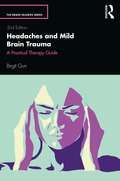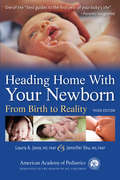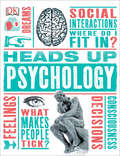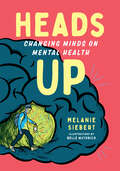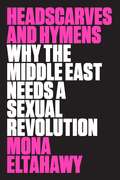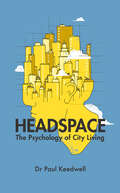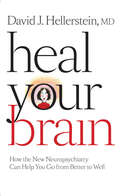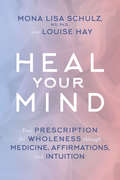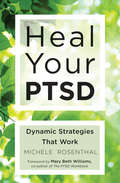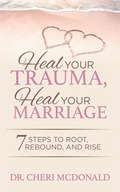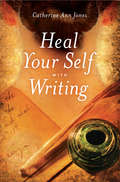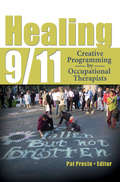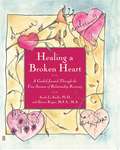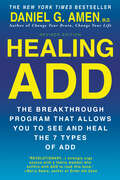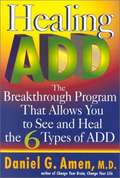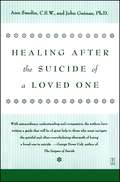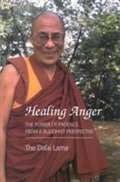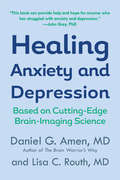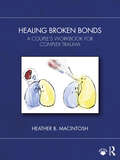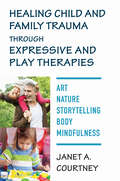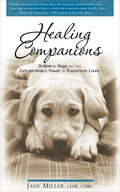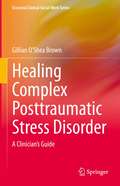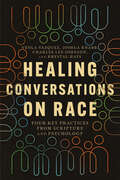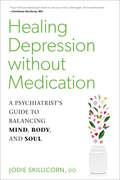- Table View
- List View
Headaches and Mild Brain Trauma: A Practical Therapy Guide (The Brain Injuries Series)
by Birgit GurrThis important book describes the biopsychosocial nature of persisting and complex headache presentations following a mild brain trauma and offers a predominantly cognitive behavioural therapy programme to guide patients toward better health and less pain. The book provides both a robust theoretical underpinning and practical therapeutic guidance for helping those who suffer from posttraumatic headaches. Placing physical symptoms of trauma in context with personal and social issues, it discusses the broader psychological implications at work after brain injury, including the idea that headaches play a functional role for the patient. Updated with the latest research findings, the book features clinical guidelines, practitioner worksheets and relaxation scripts, offering an all-inclusive manual for therapists setting up their own programmes. Written with the busy clinician in mind, it is essential reading for anyone working with brain trauma survivors.
Heading Home With Your Newborn
by Jennifer Shu Laura A. JanaThe new edition of this bestselling guide to newborn care has been fully revised and updated. Written by two pediatricians and focusing on the first few months of an infant’s life, Heading Home With Your Newborn, 3rd Edition, includes new information on breastfeeding and the involvement of allergies, formula options, vitamins and supplements (vitamins, iron, fluoride, probiotics), sleep, extended stay in strapped-in positions(car seats, bouncy chairs), swaddling, diaper options, the impact of social media sharing, and capturing moments/sharing memories.
Heads Up Psychology (DK Heads UP)
by Marcus WeeksMaking a difficult topic easier to comprehend, Heads Up Psychology offers big ideas, simply explained, for teen readers. Psychology is all around us — in the advertising we see, the politics we debate, and in the development of products we use every day. Using engaging graphics, Heads Up Psychology explores the big ideas from all areas of psychology including psychoanalysis, intelligence, and mental disorders. With easy-to-understand coverage of all the approaches to psychology, and the ideas of more than 60 psychologists, from Asch to Milgram and Ramachandran to Zimbardo, this introduction to an often complicated subject is written with young-adult readers in mind, and is structured around the questions they often ask, like "How do I fit in?", "Who needs parents, anyway?", and "Why do I feel so angry all the time?" In Heads Up Psychology, psychological theories are explained with the help of cleverly conceived graphic illustrations and diagrams to show how they relate to everyday life. Biography spreads give interesting insights into the lives and work of Freud, Pavlov, and more, while other psychologists and their big ideas are profiled in a comprehensive directory, and case study panels describe groundbreaking experiments in the field. Supports the Common Core State Standards.
Heads Up: Changing Minds on Mental Health (Orca Issues #4)
by Melanie Siebert★ “Informative, diverse, and highly engaging; a much-needed addition to the realm of mental health.”—Kirkus Reviews, starred review Featuring real-life stories of people who have found hope and meaning in the midst of life’s struggles, Heads Up: Changing Minds on Mental Health is the go-to guide for teenagers who want to know about mental health, mental illness, trauma and recovery. For too long, mental health problems have been kept in the shadows, leaving people to suffer in silence, or worse, to be feared, bullied or pushed to the margins of society where survival is difficult. This book shines a light on the troubled history of thinking about and treating mental illness and tells the stories of courageous pioneers in the field of psychiatry who fought for more compassionate, respectful and effective treatments. It provides a helpful guide to the major mental health diagnoses along with ideas and resources to support those who are suffering. But it also moves beyond a biomedical focus and considers the latest science that shows how trauma and social inequality impact mental health. The book explores how mental health is more than just “in our heads” and includes the voices of Indigenous people who share a more holistic way of thinking about wellness, balancing mind, body, heart and spirit. Highlighting innovative approaches such as trauma-informed activities like yoga and hip-hop, police mental health teams, and peer support for youth, Heads Up shares the stories of people who are sparking change.
Headscarves and Hymens: Why the Middle East Needs a Sexual Revolution
by Mona Eltahawy<p>The journalist Mona Eltahawy is no stranger to controversy. Through her articles and actions she has fought for the autonomy, security, and dignity of Muslim women, drawing vocal supporters and detractors. Now, in her first book, Headscarves and Hymens, Eltahawy has prepared a definitive condemnation of the repressive forces--political, cultural, and religious--that reduce millions of women to second-class citizens. <p>Drawing on her years as a campaigner for and commentator on women's issues in the Middle East, she explains that since the Arab Spring began in 2010, women in the Arab world have had two revolutions to undertake: one fought alongside men against oppressive regimes, and another fought against an entire political and economic system that represses women in Egypt, Saudi Arabia, Tunisia, Libya, Yemen, and other nations. <p>Eltahawy has traveled across the Middle East and North Africa, meeting with women and listening to their stories. Her book is a plea for outrage and action on their behalf, confronting a "toxic mix of culture and religion that few seem willing or able to disentangle lest they blaspheme or offend." A manifesto motivated by hope and fury in equal measure, Headscarves and Hymens is as illuminating as it is incendiary.</p>
Headspace: The Psychology of City Living
by Dr. Paul KeedwellAn examination of the secret psychology of the city and how it affects our daily happiness. More and more of us are choosing to live in the man-made environment of the city. The mismatch between this artificial world and our nature-starved souls can contribute to the stresses of city living in a way that is barely noticed—but is crucially important.What does the science of architectural psychology tell us about how the world of brick and concrete affects how we think, feel and behave?In an increasingly crowded urban world, how does good urban design inspire, restore and bring us together?Conversely, how does bad architecture cause anxiety, alienation and depression?Starting with the home and reaching out to the street, neighbourhood and wider city landscape, Headspace teaches us how to see our cities differently, and how we can best adapt to our rapidly changing urban world.Praise for Headspace“Full of interesting nuggets. Presents the results of scores of scientific studies into the physical environment and does so in a pleasant, discursive way.” —Will Wiles, RIBA Journal“A properly glorious book. Amazing.” —Monocle Radio“Links what we build with what we do. It’s an important question—an architectural holy grail, in a way.” —Evening Standard
Heal Your Brain: How the New Neuropsychiatry Can Help You Go from Better to Well
by David J. HellersteinMaybe you are one of the more than 45 million people in the United States who is currently struggling with depression. Maybe anxiety keeps you from truly enjoying your job, your relationships, your life. Maybe every change you have tried to make seems to have failed and you are beginning to feel as if change is simply not possible.Author David J. Hellerstein uses the term New Neuropsychiatry to refer to a dramatically different approach to help people who have depression and anxiety disorders. Unlike Old Psychiatry, which often focused on early life issues, the New Neuropsychiatry focuses on improving present-day life and on achieving long-term remission of symptoms. Heal Your Brain combines the advances of neuroscience and medicine with the art of the storyteller to show how the New Neuropsychiatry can alter the course of your life.Dr. Hellerstein, a psychiatrist at Columbia University’s College of Physicians and Surgeons, puts this new form of psychiatry to the test. Depression and anxiety disorders damage the brain, but as Dr. Hellerstein explains, the right treatment can change the patterns of brain activity, brain cell connections, and even the brain’s anatomy. To illustrate, he relates the stories of people as they travel through various phases of New Neuropsychiatry treatment, from evaluation to therapy to remission, and illustrates how this approach can help you progress through each phase as well. The book’s compelling narrative demonstrates that, in many cases, it is possible to achieve a stable recovery and return to—or even experience for the first time—a life free of crippling anxiety and depression.
Heal Your Mind: Your Prescription For Wholeness Through Medicine, Affirmations, And Intuition
by Mona Lisa Schulz Louise HayMany of us grapple with how to stay happy, calm, and focused in a world that seems to get more complex by the minute. How do we keep our wits about us, our mood stable, and our memory intact when our brains and bodies are bombarded with information and influences from every side? This one-of-a-kind resource combines cutting-edge science with compassion and wisdom to offer answers we can really use.Heal Your Mind continues the three-pronged healing approach that Dr. Mona Lisa Schulz and Louise Hay pioneered together in All Is Well: Heal Your Body with Medicine, Affirmations, and Intuition. Here, it’s applied to aspects of the mind ranging from depression, anxiety, and addiction to memory, learning, and even mystical states. You’ll learn what’s going on in your brain and body when: • You feel sad, angry, or panicked • An addictive substance or behavior has hold of you • You have trouble focusing, reading, or remembering • A past trauma is clouding your mind in the present • An emotional state is a clue to a physical ailment • And moreAnd in each chapter, you’ll get a "virtual healing experience" through case studies in the All Is Well Clinic, where Dr. Mona Lisa uses medical intuition to pinpoint issues in a wide range of prototypical client histories and she and Louise offer solutions and affirmations to help restore well-being.Today, the "pill-for-every-ill" approach is so prevalent that we may think our minds and bodies need an endless array of expensive, ever-changing pharmaceutical interventions. In truth, medicines are just one approach to healing the mind; nutritional supplements give us another important way to support mind-body health; and affirmations, as well as various forms of therapy, can restore us to balance by changing the way we think. Heal Your Mind puts all these tools at your disposal to help you choose your own path toward wholeness.
Heal Your PTSD: Dynamic Strategies That Work
by Michele RosenthalSelf-help measures to supplement PTSD recovery: &“Excellent.&”—Mary Beth Williams, PhD, MCSW, co-author of The PTSD Workbook Following a critical illness, Michele Rosenthal struggled with Post-Traumatic Stress Disorder for twenty-five years. Now a post-trauma coach and award-winning writer, Rosenthal shares the program that helped her and others. Trauma and recovery have never been easy, and with different trauma disorders, there is no one solution. Whether it&’s psychological trauma or emotional trauma, by exerting self and emotional control, readers can examine how, when, and in what way to move toward recovery. Find stages and exercises to build a flexible, unique system that strengthens trauma recovery. Inside, learn how to: · Connect to your own power and authentic self · Apply self-help measures like mindfulness and meditation · Handle trauma symptoms and recovery obstacles
Heal Your Trauma, Heal Your Marriage: 7 Steps to Root, Rebound, and Rise
by Dr. Cheri McDonaldHeal Your Trauma, Heal Your Marriage is a roadmap for women to conquer the rippling effects of complex trauma on themselves and their marriage.For over thirty years, Dr. Cheri McDonald has helped her clients achieve the life of their dreams and a happily-ever-after marriage. By integrating rituals and symbolic steps to her teamwork-based approach, Dr. Cheri guides women within Heal Your Trauma, Heal Your Marriage on how to:Awaken to their amazing truth and dream-come-true marriageRenew their fractured heart with re-ignited, passionate energy for everlasting healing from the inside outRevive their voice to victoriously express their deepest desiresRestore their power to intuitively learn how to be present in their marriageRise to forgiveness for themselves and their partner
Heal Yourself With Writing
by Catherine Ann JonesOur lives may be determined less by past events than by the way we remember them. How do we learn to listen more to the stories that heal? How do we put together the pieces of our past? How can we rewrite our life story so that pain becomes meaningful and actually promotes growth and transformation? Heal Your Self with Writing offers a step-by-step journey of discovery and re-visioning through focused journaling, a practice that can enable healing and empowerment. In this way, each reader is able to make meaning out of memory and put the past where it belongs - behind them.
Healing 9/11: Creative Programming by Occupational Therapists
by Pat PrecinGet a first-hand look at the ongoing tragedy of 9/11 Healing 9/11 examines programs and interventions created and implemented by occupational therapists to aid those affected directly-and indirectly-by the 9/11 attacks. Ideal for courses in trauma and recovery, community interventions, disaster recovery, health programs and implementation, and mental health interventions as well as for professionals, this powerful book chronicles the experiences of OTs who worked with firefighters, burn victims, and displaced workers, as well as children, students, and clients suffering long-term symptoms of depression and anxiety. These first-hand accounts offer rare insights into the healing process for victims of terrorism (including OTs themselves), and serve as a guide to developing outreach and counseling services to those touched by future incidents. Healing 9/11 continues the work of Surviving 9/11: Impact and Experiences of Occupational Therapy Practitioners (Haworth), presenting detailed personal and professional accounts from OTs who provided physical, emotional, and psychosocial relief to thousands of disaster victims. This unique book reveals how OTs provided aggressive manual therapy, wound care, and scar management to the critically injured; how OTs analyzed the job market and found work for people who had lost their livelihoods; how OTs worked with students in classroom settings to relieve their anxieties; and how OTs helped rescue workers at Ground Zero deal with the emotions that threatened to overpower them.Healing 9/11 examines: nontraditional group therapy non-clinical treatment settings burn rehabilitation pediatric occupational therapy school-based occupational therapy employment planning occupational frame of reference creative arts therapy post traumatic stress disorder and much more Healing 911: Creative Programming by Occupational Therapists is an essential resource for all healthcare professionals who offer relief in times of disaster.
Healing A Broken Heart
by Sarah La Saulle Sharon KaganThe loss of a love is a nearly universal emotional crisis, whether the end is divorce, desertion, or a mutually agreed-upon separation. At first, friends and family are there to offer a shoulder to cry on, but after a few months there's an expectation that we just need to get over the crisis and move on. Thus, unprocessed, painful feelings are buried, leaving us numb. Or we repeat damaging relationship patterns over and over again. The situation doesn't have to be like that. Healing a Broken Heart guides those of us grieving for a lost love through four metaphorical seasons of recovery with provocative questions -- and journal pages on which to respond -- to help move us forward. The four seasons serve as powerful metaphors for the stages of the grieving process. Summer is the season for charting the course of a relationship: remembering hopes and expectations, the warning signs that went unheeded. During autumn, journalers accept the reality of breaking up and acknowledge things about the relationship that didn't serve their needs. Winter brings the pain of grief over the profound loss. Finally, spring -- and, with it, renewal -- invites readers to examine and understand how their family history may have affected their past relationships. Punctuated throughout with poems and moving meditations, the thoughtful, interactive approach of this book offers the time and space we all need to heal when our hearts are broken.
Healing ADD Revised Edition
by Daniel G. AmenAll-New Revised Edition Attention deficit disorder (ADD) is a national health crisis that continues to grow--yet it remains one of the most misunderstood and incorrectly treated illnesses today. Neuropsychiatrist Daniel G. Amen, MD was one of the first to identify that there are multiple types beyond just purely hyperactive or inattentive ADD, each requiring a different treatment. Now, in this all-new, revised edition, Dr. Amen again employs the latest medical advances in the field, including the largest brain imaging study ever completed on patients with ADD, to identify, examine, and demystify the 7 distinct types of ADD and their specific treatments. With updated recommendations for nutraceuticals and/or medications targeted to brain type, diet, exercise, lifestyle interventions, cognitive reprogramming, parenting and educational strategies, neurofeedback, and more, Dr. Amen's revolutionary approach provides a treatment program that can lead sufferers of ADD to a normal, peaceful, and fully functional life. Sufferers from ADD often say, "The harder I try, the worse it gets." Dr. Amen tells them, for the first time, why, and more importantly how to heal ADD. See Dr. Amen's Public Television Special on ADD!
Healing ADD: The Breakthrough Program That Allows You to See and Heal the Six Types of Attention Deficit Disorder
by Daniel G. AmenA radically new approach to treating the single most common learning and behavioral problem in America. Commonly perceived as a flavor-of-the-month diagnosis, ADD is, in fact, an enormous health problem that will only continue to grow. It affects fully 6 percent of the population, yet less than one-third of them are taking medication. Why? According to Dr. Daniel Amen, Attention Deficit Disorder is underdiagnosed, incorrectly treated, and poorly understood. Dr. Amen, board-certified in child, adolescent, and adult psychiatry and nuclear medicine, has discovered that there are six types of ADD-not just the commonly known two. Moreover, the most frequently prescribed treatment-Ritalin-makes four of these types worse. Dr. Amen's discovery results from an intensive, years-long study of brain imaging that identified the distinctive brain dysfunctions characterizing each ADD type. Giving guidelines and diagnostic tools for determining which type of ADD an adult or child has, Healing ADD from the Inside Out provides readers with a comprehensive and proven program for enhancing the brain function for each of the six types of Attention Deficit Disorder. Encompassing medications, diet, supplements, exercise, and social support, this is the state of the art in ADD treatment. ADD sufferers often say, "The harder I try, the worse it gets." Dr. Amen tells them how to-for the first time-get well. To listen to an interview with Dr. Daniel Amen, check out www.TalktoTara.com
Healing After the Suicide of a Loved One
by John Guinan Ann SmolinHelps family and friends work through grief following a suicide.
Healing After the Suicide of a Loved One
by Ann SmolinToo often people suffering the aftermath of a suicide suffer alone. As the survivor of a person who has ended his or her own life, you are left a painful legacy -- and not one that you chose. Healing After the Suicide of a Loved One will help you take the first steps toward healing. While each individual becomes a suicide survivor in his or her own way, there are predictable phases of pain that most survivors experience sooner or later, from the grief and depression of mourning to guilt, rage, and despair over what you have lost. You may be torturing yourself with repetitive questions such as "What if...?" "Why didn't we...?" and "Why, why, why?" Healing After the Suicide of a Loved One will steer you away from this all-too-common tendency to blame yourself and will put you on the path to healing and recovery. Remember, your wounds can heal and you can recover. Filled with case studies, excellent information, valuable advice, and a completely up-to-date reading list and directory of suicide support groups nationwide, this valuable book will give you the strength and hope to go on living.
Healing Anger: The Power of Patience from a Buddhist Perspective
by Dalai Lama Geshe Thupten JinpaThe Dalai Lama teaches with clear and forceful language. These teachings form an essential spiritual discourse. When we get angry with someone we are often unaware of the effect it has on that person, let alone the ripple effect it causes. Nonetheless, it does indeed have a ripple effect: that person does not hang on to the anger but passes it on, perhaps repeatedly. The antidote to anger is patience, and so the dissemination of Shantideva's wisdom regarding patience becomes a critical need in these times.
Healing Anxiety and Depression: The Revolutionary Brain Based Program That Allows You To See
by Daniel G. Amen Lisa C. RouthBased on brain-imaging science, Healing Anxiety and Depression reveals the major anxiety and depression centers of the brain, offers tools to determine the specific type of disorder, and provides a comprehensive program for treating both anxiety and depression. <P><P>Dr. Daniel Amen—a pioneer in uncovering the connections between the brain and behavior—presents his revolutionary approach to treating anxiety and depressive disorders. Based on brain science—and featuring treatment plans that include medication, diet, supplements, exercise, and social and therapeutic support—this groundbreaking book will help you conquer these potentially devastating disorders and change the way you think about anxiety and depression. <P><P>Healing Anxiety and Depression: • Reveals 7 types of anxiety and depression • Provides proven-effective treatment plans for each type • Explains the source of anxiety and depression through brain images • Includes a self-diagnostic type-determining test
Healing Broken Bonds: A Couple's Workbook for Complex Trauma
by Heather B. MacIntoshThis one-of-a-kind theoretical and practical workbook provides couples with tools to work towards healing their relationships and experiences of trauma. It will be an invaluable resource for mental health professionals working with trauma survivors and those who are using Developmental Couple Therapy for Complex Trauma (DCTCT) with the couples they work with.Serving as a self-help guide for couples as well as a companion to Developmental Couple Therapy for Complex Trauma: A Manual for Therapists, this workbook provides couples with accessible exercises they can work with on their own and for clinicians to share with their clients to support their therapy work. Chapters cover psychoeducation, skills building, attachment focused dyadic processing, and consolidation so couples can bring these new skills and insights into daily life. Featuring downloadable handouts and journal reflections, as well as questions and discussion prompts throughout, the author holds in mind the varied backgrounds that patients come from, such as their cultural, ethnic, community, sexual and gender identities, and socio-economic group, and integrates these diverse needs into the exercises, thus providing inclusivity within the treatment process. The book is essential reading for trauma survivor couples and individuals looking to build stronger and healthier relationships, as well as couple and family therapists, counsellors, and other mental health professionals who help clients navigate experiences of trauma.
Healing Child and Family Trauma through Expressive and Play Therapies: Art, Nature, Storytelling, Body And Mindfulness
by Janet A. Courtney PhD, RPT-SHealing assessments and interventions from disparate areas of knowledge such as art, nature, and storytelling. There are many ways to help children and families heal from trauma. Leaning on our ancestral wisdom of healing through play, art, nature, storytelling, body, touch, imagination, and mindfulness practice, Janet A. Courtney helps the clinician bring a variety of practices into the therapy room. This book identifies seven stages of therapy that provide a framework for working with client’s emotional, cognitive, somatic, and sensory experiences to heal from trauma. Through composite case illustrations, practitioners will learn how to safely mitigate a range of trauma content, including complicated grief, natural disaster, children in foster care, aggression, toxic divorce, traumatized infants diagnosed with neonatal abstinence syndrome, and young mothers recovering from opioid addiction. Practice exercises interspersed throughout guide practitioners to personally engage in the creative expressive and play therapy techniques presented in each chapter, augmenting professional self- awareness and skill- building competencies.
Healing Companions: Ordinary Dogs and Their Extraordinary Power to Transform Lives
by Jane Miller&“Finally, someone has written about the best kept mental health secret: how dogs save psyches, hearts, minds, and sometimes, quite literally, lives . . .&”—Belleruth Naparstek, LISW, author of Invisible Heroes As the more than 65 million dog-owners in America will attest, there&’s something about the presence of a dog that inspires confidence, nurtures emotional well-being, and brings out the best in ourselves. But for some people, the presence of a dog can do even more. Written by the leading expert in an emerging new field of therapy, Healing Companions is the first book to detail how dogs are increasingly benefiting those who suffer from a range of emotional ills, from eating disorders and anxiety, to agoraphobia, depression, and post-traumatic stress. Healing Companions will teach you: What criteria to consider when choosing the right dog for you.What kind of training service dogs require.What to expect and how to respond when you take a service dog out in public.How a dog can complement other forms of therapy.How to navigate the procedural regulations that apply to a service dog.How to recognize the dog&’s needs and provide it with proper care.And much more. &“Animals are more complete than people. They are wonderful teachers, therapists and role models for us all. Read Healing Companions and learn about their ability to guide and heal us all.&”—Bernie Siegel, MD, #1 New York Times bestselling author of Love, Animals, and Miracles &“This book should be required reading for everybody who is considering getting a psychiatric service dog or is working on training them.&”—Temple Grandin, author of Animals Make Us Human
Healing Complex Posttraumatic Stress Disorder: A Clinician's Guide (Essential Clinical Social Work Series)
by Gillian O’Shea BrownThis book is a clinician's guide to understanding, diagnosing, treating, and healing complex posttraumatic stress disorder (C-PTSD). C-PTSD, a diagnostic entity to be included in ICD-11 in 2022, denotes a severe form of posttraumatic stress disorder (PTSD) and is the result of prolonged and repeated interpersonal trauma. The author provides guidance on healing complex trauma through phase-oriented, multimodal, and skill-focused treatment approaches, with a core emphasis on symptom relief and functional improvement. Readers will gain familiarity with the integrative healing techniques and modalities that are currently being utilized as evidence-based treatments, including innovative multi-sensory treatments for trauma, in addition to learning more about posttraumatic growth and resilience. Each chapter of this guide navigates readers through the complicated field of treating and healing complex trauma, including how to work with clients also impacted by the shared collective trauma of COVID-19, and is illustrated by case examples. Topics explored include:Complex layered traumaDissociationTrauma and the bodyThe power of beliefAn overview of psychotherapy modalities for the treatment of complex traumaEgo state work and connecting with the inner childTurning wounds into wisdom: resilience and posttraumatic growthVicarious trauma and professional self-care for the trauma clinicianIt is important for clinicians to be aware of contemporary trends in treating C-PTSD. Healing Complex Posttraumatic Stress Disorder is an essential text for mental health practitioners, clinical social workers, and other clinicians; academics; and graduate students, in addition to other professionals and students interested in C-PTSD. It is an attractive resource for an international clinical audience as we work together to heal, affirm, and unburden clients following this time of shared collective trauma.
Healing Conversations on Race: Four Key Practices from Scripture and Psychology
by Veola Vazquez Joshua Knabb Charles Lee-Johnson Krystal HaysRace complicates our relationships, even when we reject racism and seek to walk a better path together. How can we get our thinking—and our conversations—unstuck from entrenched patterns? In this book, four experts in psychology and social work present a model for how to build and deepen the cross-race relationships we want. The starting place, they testify, must be a biblical understanding of the problem of racial disunity, grounded in the grand narrative of Scripture, followed by practical insights about psychology and social behavior. This book is the culmination of professional—but also deeply personal—conversations the authors have had with each other, wrestling together over current events, their own stories, and their roles in the healing process. They combine biblical teachings with psychological science to help Christians develop the skills to discuss race and ethnicity. In each chapter, you will be guided through essential information, biblical examples, case studies, activities, and journaling exercises to prepare you to practice healing conversations. Using research from psychology, attachment theory, and emotionally focused therapy, this process will build your knowledge, self-awareness, other-awareness, and specific relational skills. Jesus embodied love, challenged injustice, welcomed those rejected by society, and engaged in healing conversations with everyone he encountered. The insights and practices in Healing Conversations on Race will help Christians grow in Christlikeness and follow his example.
Healing Depression without Medication: A Psychiatrist's Guide to Balancing Mind, Body, and Soul
by Jodie SkillicornWhat if everything we thought we knew about depression—and how to heal from it—was wrong? Many antidepressants—the first line in our standard of care for treating depression—bring with them potential health risks, yet 1 in 6 Americans takes medication to alleviate feeling sad, anxious, stuck, or unable to focus or sleep. More and more, conventional medicine pathologizes how we respond to life&’s challenges—like feeling trapped in an unfulfilling job, grieving the death of a loved one, or being anxious about a bad relationship—telling us that they&’re symptoms of disease. Psychiatrist Jodie Skillicorn presents a new path, debunking the myth of the neurochemical imbalance and exploring the roots of depression, such as adverse childhood experiences (ACEs) and poorly managed day-to-day stress. Evidence-based and fully supported by current depression research, Dr. Skillicorn&’s holistic methods for beating depression—including nutrition, mindfulness, fostering meaningful connections, exercise, sleep, nature, and breathwork—empower readers to become agents of their own wholeness and healing.
